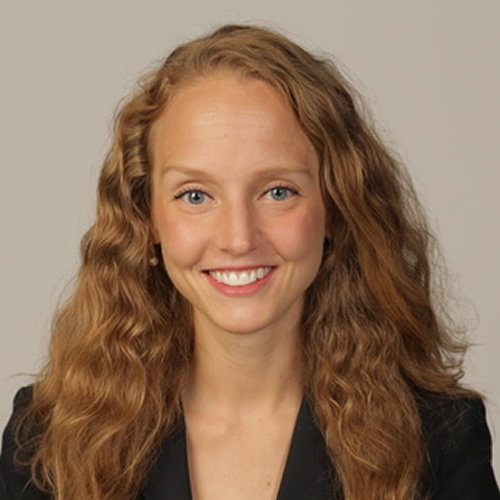 Kellogg Faculty Fellow Katie Jarvis (history) has been awarded a 2019 fellowship by the American Council of Learned Societies (ACLS).
Kellogg Faculty Fellow Katie Jarvis (history) has been awarded a 2019 fellowship by the American Council of Learned Societies (ACLS).
She was among three researchers and Notre Dame and 81 fellows overall named from more than 1,100 applicants in the 2019 award cycle. ACLS awardees are selected for excellence in the humanities and humanistic social sciences, and the fellowships support six to 12 months of full-time research and writing.
Jarvis is an expert in the French Revolution, and her newest research, as described in her proposal, is the first book-length project to argue that resolving conflict itself can be revolutionary.
Jarvis’s ACLS-awarded “Democratizing Forgiveness” investigates the ways in which the French revolutionaries refashioned forgiveness from 1789 to 1802.
“Amid conflict,” she argues, “the French Revolution forged modern politics and society by reinventing reconciliation, and instead of depicting reconciliation as the revolution’s dénouement, I want to reframe forgiveness as the main plot and spotlight its development.”
For Jarvis, this means moving beyond a historical focus on trauma, including the French Revolution’s scenes of the Paris guillotine with irrevocable sentences carried out on citizens whose crimes were deemed irreconcilable. Jarvis tells a second tale in the same city, and just around the corner from the guillotine:
Citizen Brou and Citizen Descotes appeared before a revolutionary court to a much different end. They were attempting to reconcile their differences. Brou had loaned Descotes a horse, which the latter had “unhappily lost.” Now, both citizens hoped that their locally elected Justice of the Peace, a new revolutionary arbitrator, could mediate a resolution. Brou proposed an indemnity for the mare, which Descotes found just and countered by requesting a repayment plan. Brou consented and the two resolved their dispute without a civil suit.
“Historians of revolutions have paid far more attention to the scenes of conflict, like those at the foot of the guillotine, than to scenes of commonplace reconciliation, like that between Brou and Descotes,” said Jarvis. “This scholarly silence starkly contrasts with the growing interdisciplinary interest in local forgiveness, which has emerged as an urgent issue in the wake of modern wars and genocide.”
With ACLS funding, Jarvis will undertake research in France.
“During my fellowship year, I look forward to writing two chapters from my manuscript and to completing research for two others,” Jarvis said. “The fellowship will also support a crucial trip to Paris where I will work in the Archives nationales, the Archives de Paris and the Bibliothèque nationale de France.”
Jarvis drew inspiration for her research from work on a previous book, “Politics in the Marketplace: Work, Gender, and Citizenship in Revolutionary France,” where she found many instances of everyday citizens using the revolutionary language of “liberty, equality and fraternity” to petition local justices of the peace in various civil cases.
“When we think of revolutions, we often think of moments of great rupture, but new systems of quotidian reconciliation can themselves transform politics and society,” Jarvis said. “In short, forgiveness can be both a brake on conflict and a motor for change.”
Other Notre Dame fellowship winners were Yury P. Avvakumov, associate professor of theology and Emily Remus, assistant professor of history.
Adapted from a story originally published at news.nd.edu.





